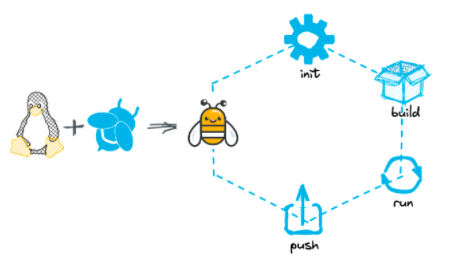
BumbleBee simplifies building extended Berkeley Packet Filter (eBPF) tools and allows users to package, distribute, and run them anywhere.
eBPF provides Linux kernels the extensibility to enable developers to program the Linux kernel to quickly build intelligent or feature-rich functions based on their business needs.
BumbleBee brings a Docker-like experience for eBPF, and through simple bee CLI commands, users can easily build, run, and distribute their eBPF programs as OCI (Open Container Initiative) images and plug the images to their existing OCI image workflows.
BumbleBee is built using libbpf and allows you to focus on writing your eBPF code while taking care of the user space components automatically.
BumbleBee automatically detects and displays maps in your program that allow the user space and kernel space programs to share data. This is accomplished through the use of special BPF conventions and keywords.
“Through these simple bee init, build, run, list, and push commands, we are excited to bring the Docker-like experience to eBPF so that developers can not only easily build eBPF programs but also collaborate and share their eBPF programs with others through their favorite OCI image repositories,” Lin Sun, the director of open-source at Solo.io wrote in a blog post.






